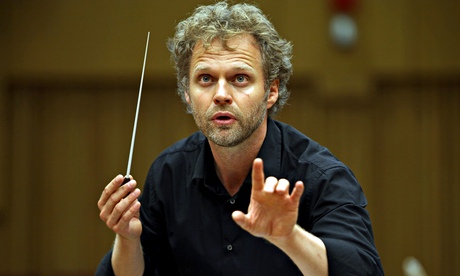
Sibelius has been a major feature of Thomas Søndergård’s relationship with the BBC National Orchestra of Wales. It was exactly five years ago that, conducting them for the first time as a last-minute replacement, his En Saga made a strong impression; his accompanying of the Violin Concerto with Vilde Frang was remarkable, and earlier this year there was much acclaim for his interpretation of the Fifth Symphony at the Proms. Now, with recordings of symphonies in the pipeline, this concert pairing the Sixth Symphony with the first offered another opportunity to observe this affinity. It amounts to an almost missionary zeal, which Søndergård attributes in part to the inspiration of the late Paavo Berglund.
The D Minor Symphony, No 6, is perceived as an autumnal work, yet the mood that coloured the sustained opening phrases spoke less of a reconciliation with life than a continuing search for meaning. Søndergård’s handling both of the details of instrumentation and the overriding structural form ensured the work’s strong sense of trajectory, but it also gave the finale’s last dramatic pauses – questions poised in the air – a chilling frisson.
Yet it was in the First Symphony in E Minor that the underlying urgency that Søndergård finds in Sibelius emerged even more convincingly, with the distinctive emotional pitch of the music carefully gauged. The BBCNOW showed a passionate commitment: the strings in particular had a wonderful depth of tone and the timpani a biting edge. If a recording can capture this vibrancy, it will be one to note.
Between the two symphonies, BBC New Generation pianist Christian Ihle Hadland was the soloist in the Grieg Piano Concerto. Balancing power with the gentlest of sensibilities, this was an interpretation with a welcome freshness and imagination.

